Playsettings was a concept created over a 24-hour period at the Enabled-by-Design-a-thon, Nov 2-3 2012, Ravensbourne College, London.
The event brought together designers and makers to create new products, services and technologies for people living with physical and mental constraints and disabilities.
Like many hackathon events, our group of six met for the first time at the event and proceeded to learn about the physical challenges being addressed, come up with ideas and create rapid prototypes to explore those ideas further.
And Playsettings was born!
Our team was first given the task of better understanding the constraints around physical dexterity. We were given thick gloves of different kinds and asked to try out various daily tasks. This proved to be quite challenging, especially when it came to handling small objects and tools.
We recognised that a lack of dexterity meant a feeling of being ‘far away’ from the world and not being able to establish a sense of connection with the physicality of the world. We also felt the frustrations, emotional lows and highs with the person as they tried to do a simple task. It was almost as frustrating to watch and be a part of the experience.
Challenges to dexterity affects many different kinds of people from the elderly, to young children, to those with medical conditions, or even those of us suffering from repetitive-strain injuries.
It’s a strange experience to do something as simple as having a meal with someone, when they’re suffering from dexterity challenges. The family meal can easily become drawn out and frustrating. We wanted to tackle these frustrations and ‘level the playing field’ to unite people in a new joyful experience of eating.
Playsettings is an exploration in crockery. Can we re-think our traditional notions of the fork? Can we create new forms and eating rituals that tackle dexterity and turns the meal into a game for everyone?
As the name implies, this is to be a new playful experience at the dining table.
With the intention of bringing families together.
We began our exploration with very lo-fi prototypes, using sketches, paper-plates, plastic cutlery and chocolate biscuits.
What if we could make dining more tactile by getting physically closer to the food? These prototypes looked at how we could use our fingers and hands in different ways to grab food.
Stability can big issue, where shaking can cause liquids to spill. We looked at retaining the classic forms and affordances of traditional cups, while making them more stable by simply turning them upside down.
The ceramic plate also got a makeover as we looked at how to give its surface more physicality so you might be able to push your sliding food against something solid. The plate surface might also have different textures and dips to be able to grip food better.
Can we re-think the future of cutlery? How can we improve the common fork to just be able to pick up food better?
We evolved these prototypes into a range of products that are playful and provocative in creating new dining experiences. These were modeled and 3D printed in the space of one evening.
The FFFFork turns the fork into a three-dimensional object, by offering a matrix of tines. The FFFFork still retains it’s classic fork form and picks up food four times better.
The Rounded FFFFork allows the diner to stab down on the food rather than approach it at an angle.
The Upside-Down Tea Set is made with fine-bone china and speaks to the traditional tea set design while giving the cup more stability with a wider base.
The saucer has a lip to stop the cup from sliding off and also a biscuit holder so your chocolate biscuit won’t melt against the edge of your tea cup.
The Finger Cactus cutlery range is aimed at a more playful experience and younger market. They are finger caps with different shapes to allow you to interact and pick up your food in various ways. They’re made in rubber and plastic and can come in vibrant colors and characters to appeal to kids.
The family can play with these at the dinner table and make a game out of it, or use them at outdoor picnics where plastic knives and forks aren’t necessarily the best tools for eating outdoors.
The Slurping Spoon re-thinks the soup spoon by allowing the eater to scoop up soup and not lose it on the way due to shaking and instability.
Playground Plates turn your plate surface into a skatepark for food. Various inclines, dips and textures lets you get purchase on your food and be able to play with it at the same time.
In summary, Playsettings are a range of new crockery products aimed at a range of markets, from high-end ceramics and silverware to fun and colorful outdoor utensils. These are initial explorations into what could potentially be a new approach to inclusive dining that elevates the experience to one of joy and play.
The Playsettings Team
Haiyan Zhang, IDEO – @haiyan
Guy Robinson, Sprout Design – @sproutdesignltd
Alastair Somerville, Acuity Design – @acuity_design
Chloe Meineck, Designer & Researcher – @ChloeMeineck
Boyeun Lee, Brunel University – @boyeun
Emma Rose Metcalfe, HowDo – @erm_
With special thanks to Geraint Edwards, IDEO – @geraintedwards for helping us do the modeling on the Finger Cactus.
For Purchase
The first version of the Upside-Down Teacup is now available on Ponoko to be 3D printed in ceramic (now available in 6 colors). Purchase it here: http://www.ponoko.com/showroom/Playsettings
Further Updates
Alastair ran a quick prototyping session with his kids on the Finger Cactus idea.
Feel free to leave us a comment and your thoughts about playful crockery!
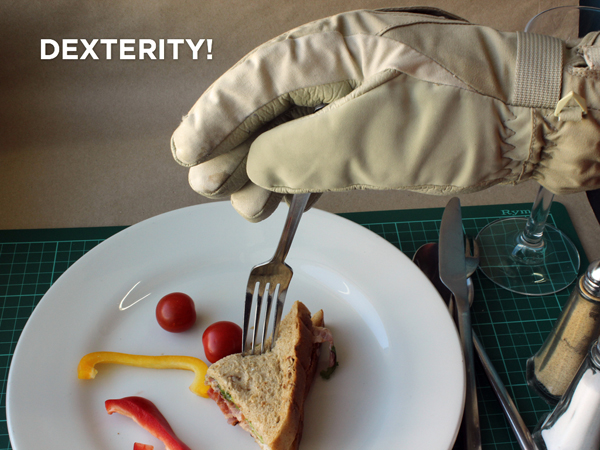
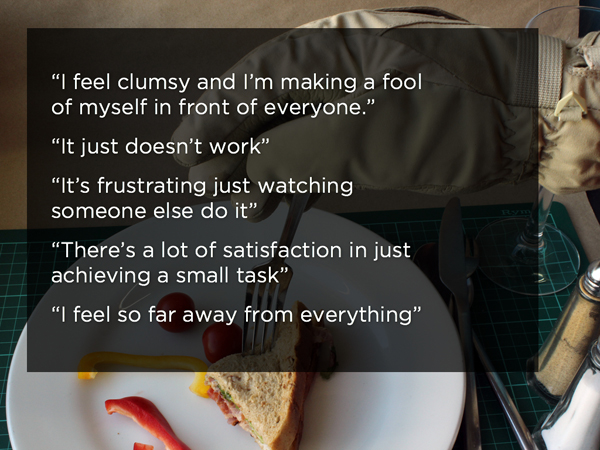
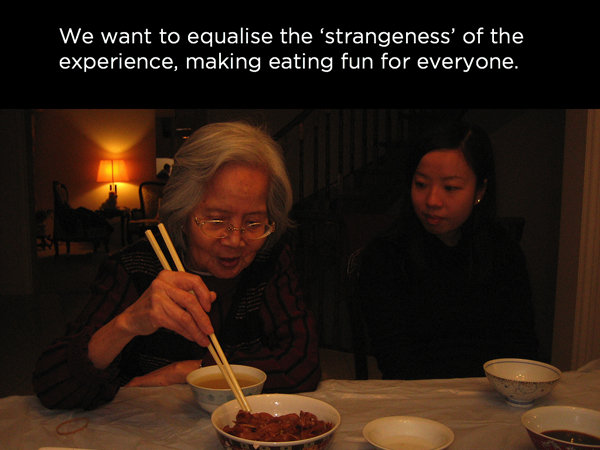


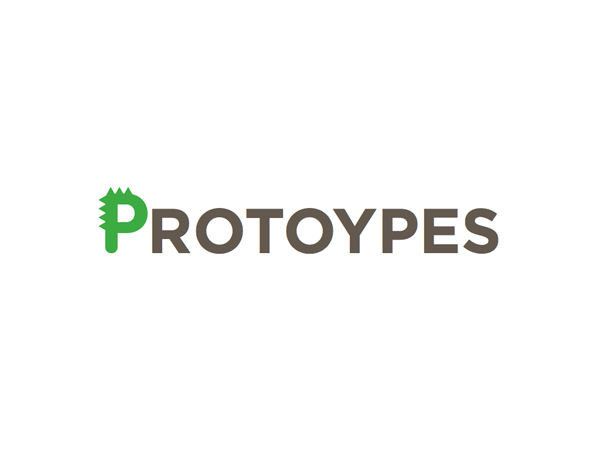
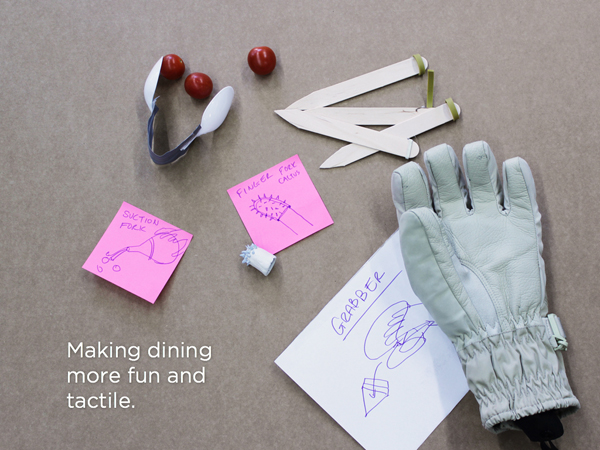
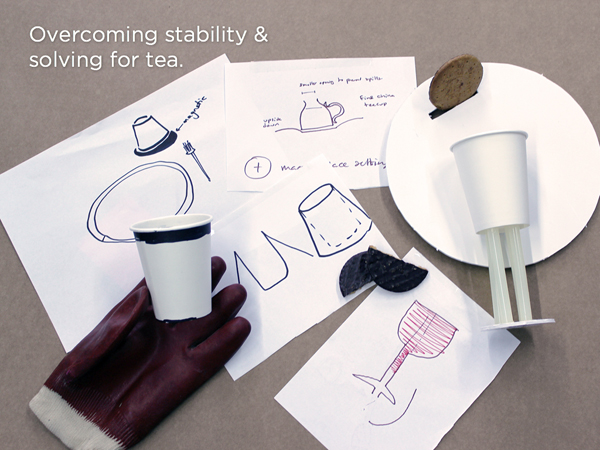
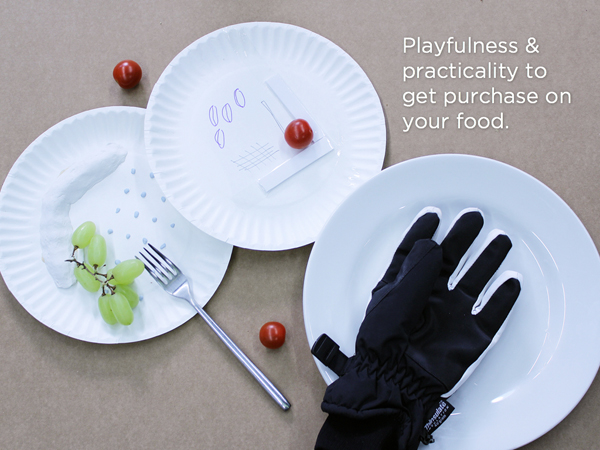
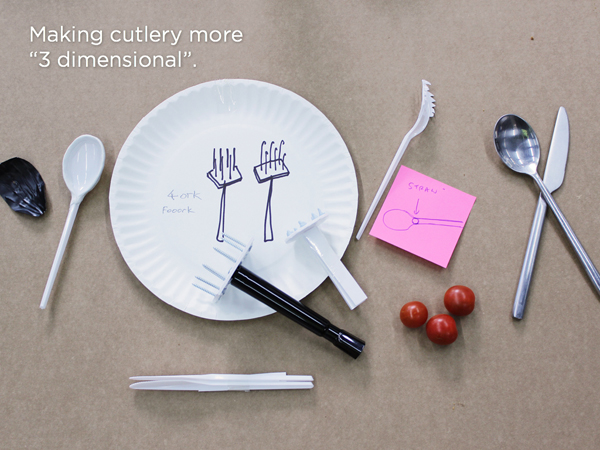

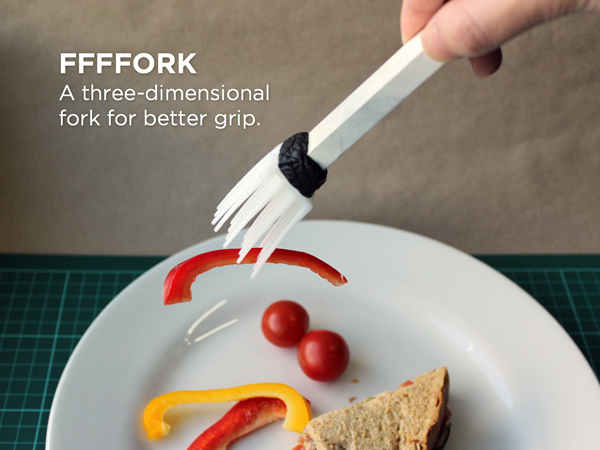
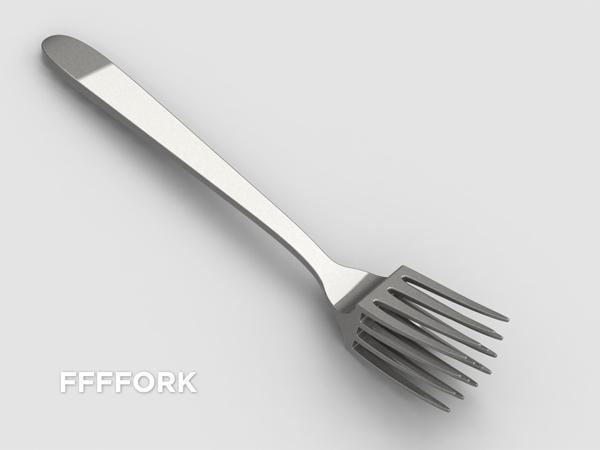
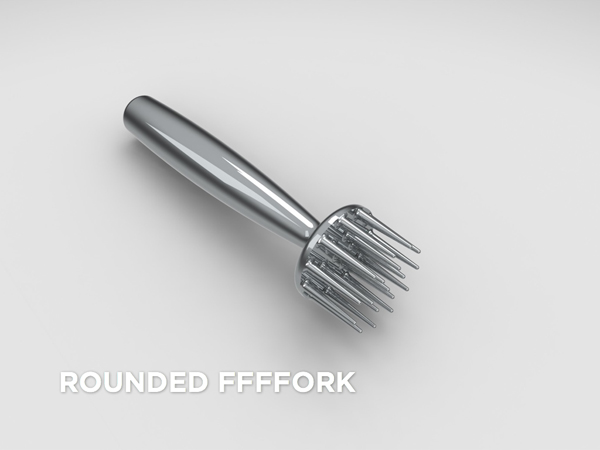
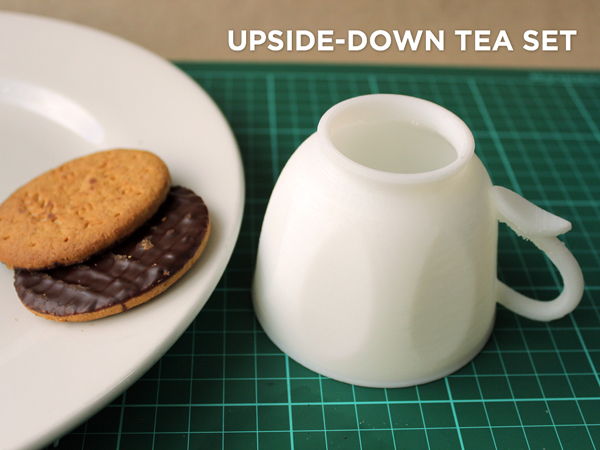
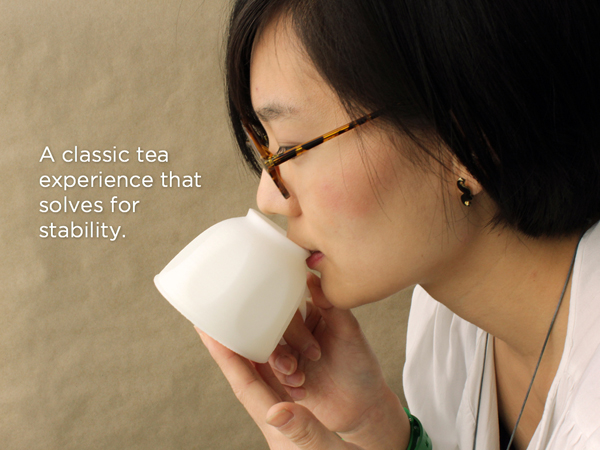
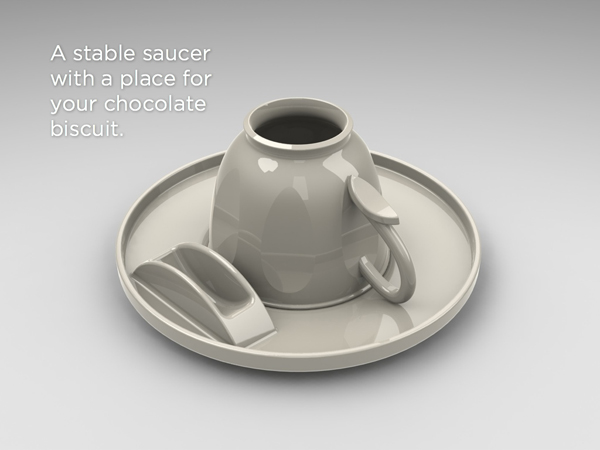
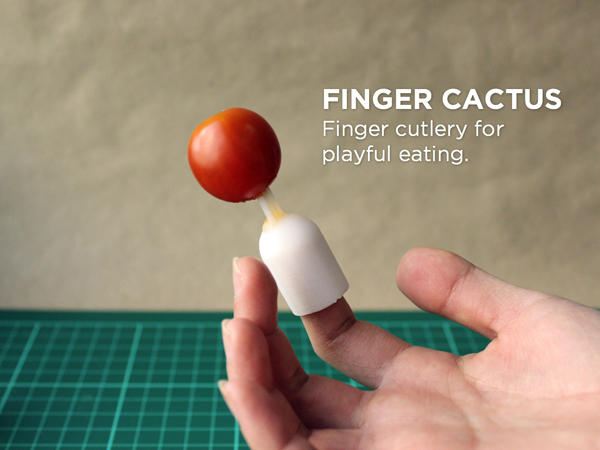
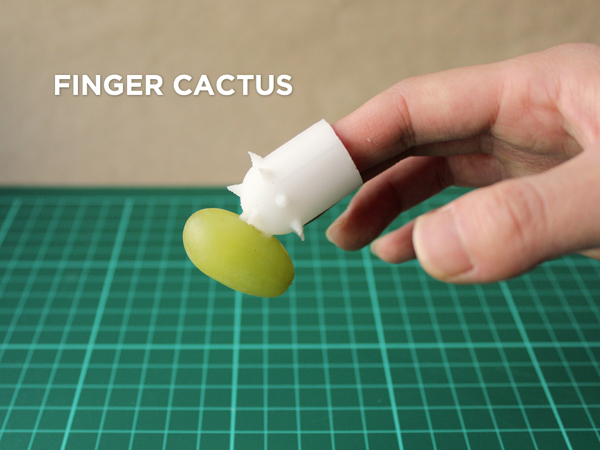
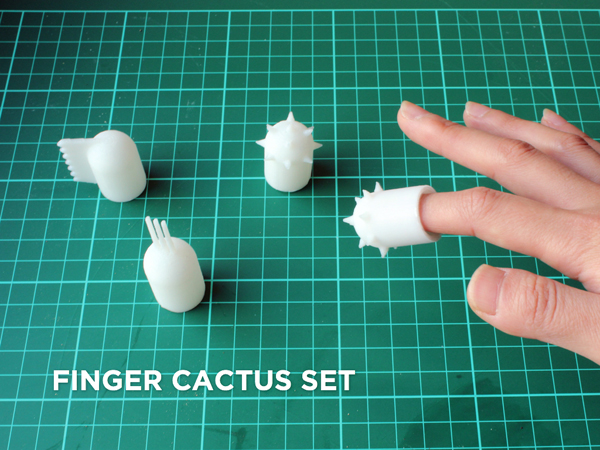
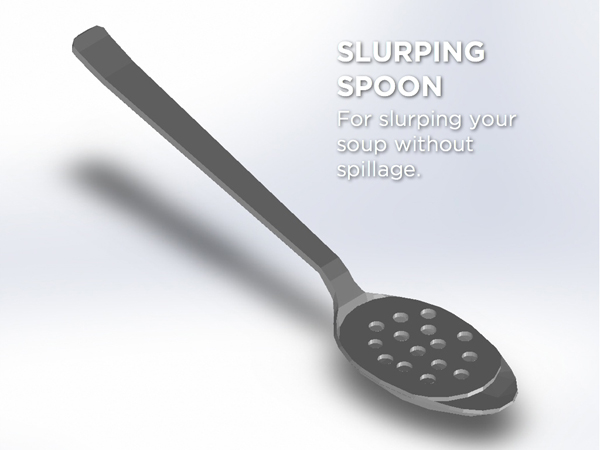
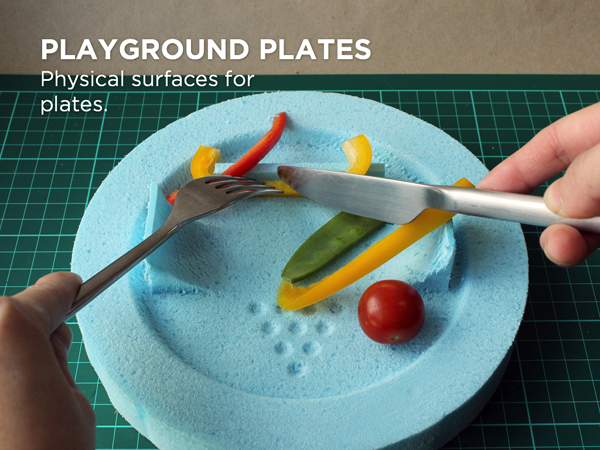
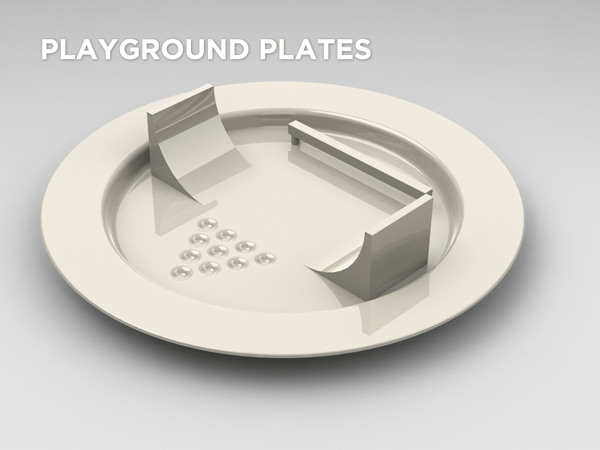
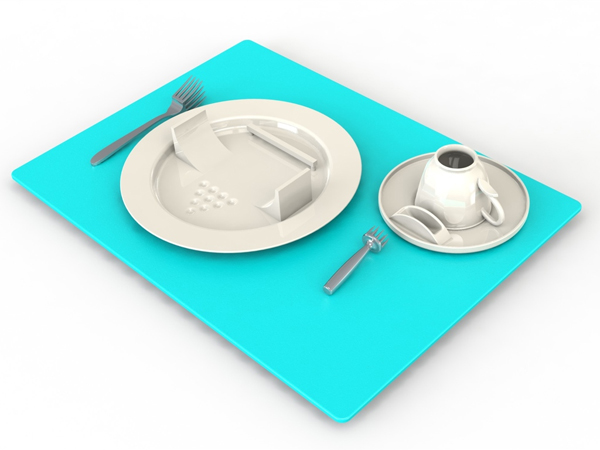
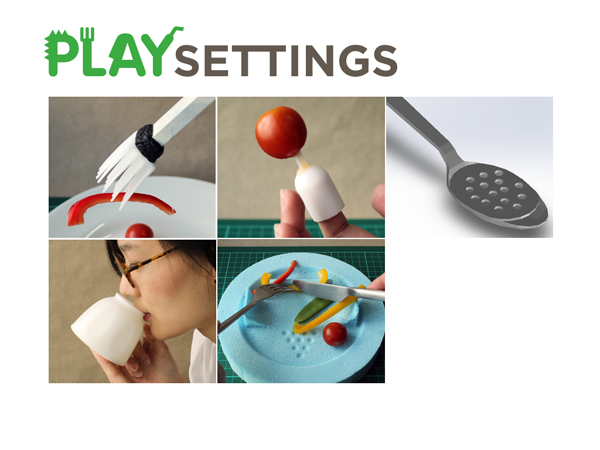
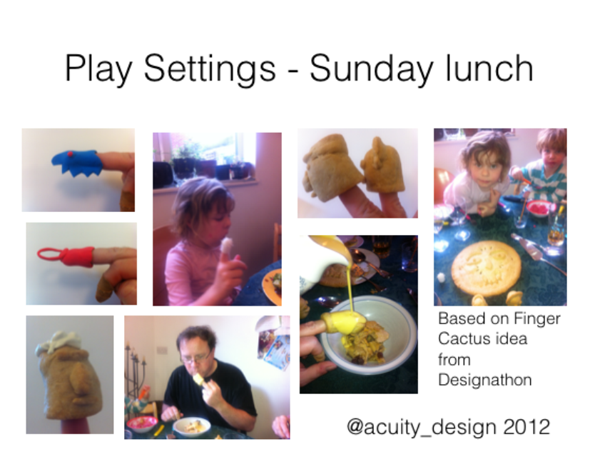

Leave a Reply